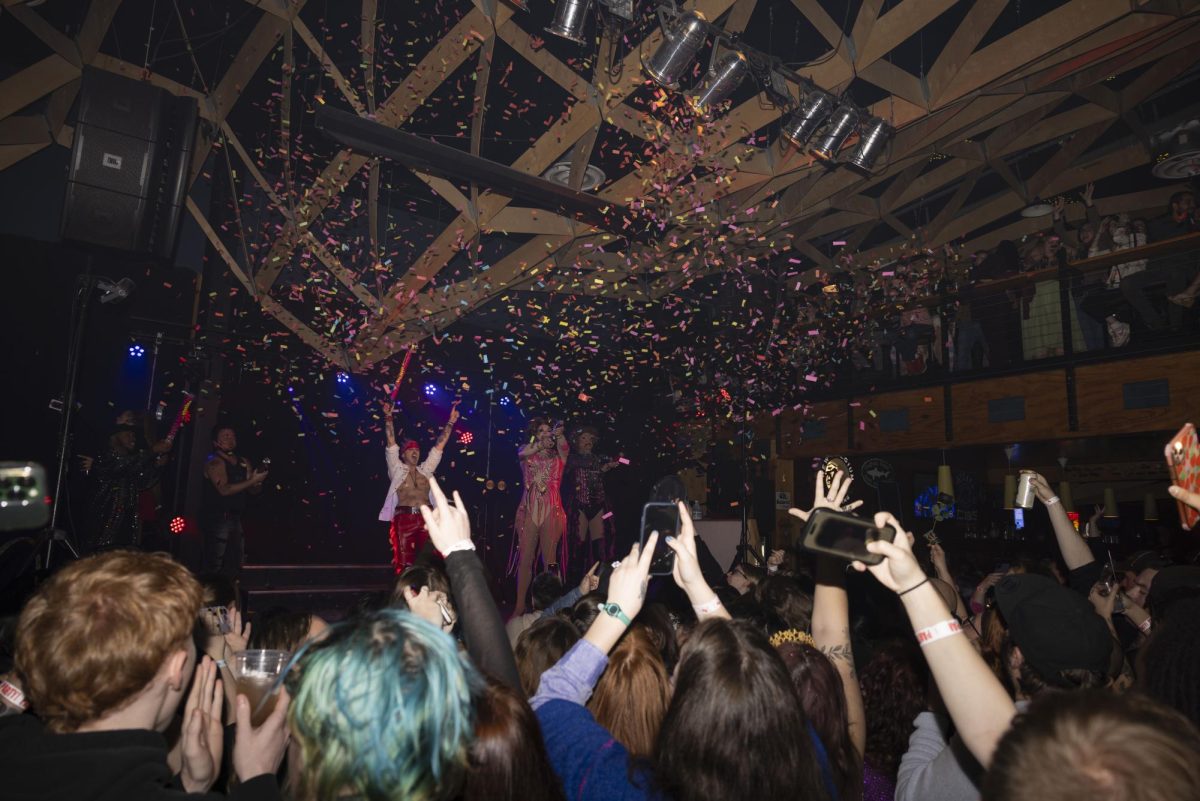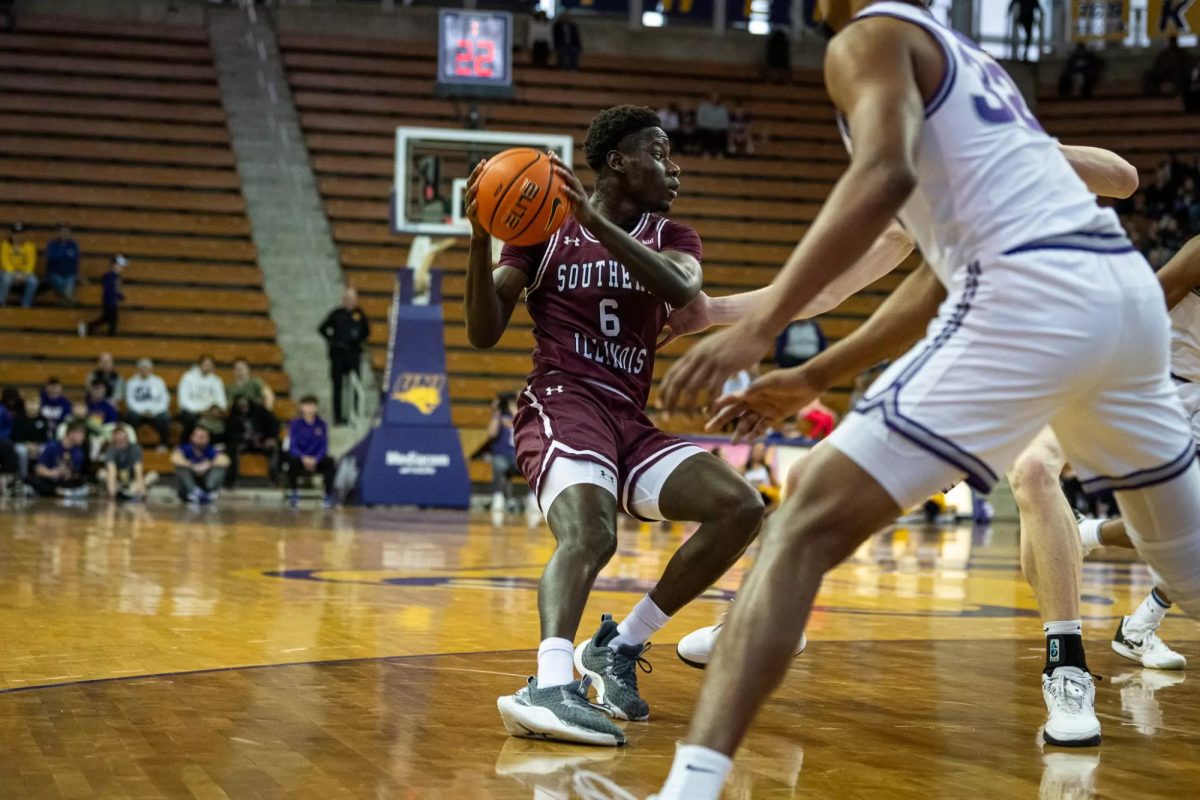Opinion: The life of the DE is the life of the university
October 25, 2016
Editor’s Note: As the Daily Egyptian celebrates 100 years of publishing, the paper will post stories and editorials throughout the week about its history and future.
The editor who started The Egyptian student newspaper 100 years ago was associated with the Ku Klux Klan. The editor who started this centennial year was Tyler Davis, the first African-American editor of the DE.
The path from Klansman to African-American editor marks a century of change as SIU has grown from a normal school to a research university. The Egyptian became the Daily Egyptian in 1962. Although everyone still calls it the DE, it publishes on paper weekly. The rest of the time it is digital.
Advertisement
And the DE is now a “converged newsroom” that houses and collaborates with River Region Evening Edition, the daily TV news program produced by students of the Department of Radio, Television and Digital Media. The convergence reflects changes in the news business and lays the groundwork for a state-of-the-art newsroom that will be built — if Illinois ever has another capital budget.
Davis is a poor kid from Chicago who, like a lot of students of modest means, got through SIU on scholarships and his DE salary. Davis now works as a producer for the Des Moines Register.
The way in which Davis’ career has taken flight illustrates how young people make the leap from freshman to professional journalist after a few years of immersion in the DE. The run-down, windowless newsroom, with its filthy, tattered carpet, its broken clocks, its abandoned press and empty pizza boxes is home for the DE staff members during their university years.
It is the place where student journalists learn to write, think, tweet, shoot photos and develop the skills and instincts for recognizing a story and distinguishing facts from rumors.
It is where they meet their best friends and sometimes their boyfriends, girlfriends, wives and husbands.
There also have been tragedies, like the death of promising Ryan Rendleman, killed in a car crash in April 2008 on his way to cover a DE story. Rendleman didn’t have to make the car trip to get the story. He went to get a better story and photograph — the thing journalists are supposed to do — and it cost him his life. The staff cried, gathered in a large circle outside the School of Journalism and planted a redbud tree that still reminds us of him.
The DE’s first woman editor was chosen in the 1930s. In modern times women and men who graduated from the DE played important roles at their news organizations. Kathy Best led the Seattle Times to Pulitzer prizes. Jackie Spinner headed the Washington Post’s Baghdad bureau and escaped from an attempted kidnapping at Abu Ghraib. Marcia Bullard was editor of USA Weekend. Donna Korando, Lisa Eisenhauer and Deborah Peterson played important roles at the St. Louis Post-Dispatch. And Monique Garcia is the Chicago Tribune’s Springfield reporter.
Advertisement*
The life of the DE is the life of the university. The university community sees landmark events through the words and images of DE journalists.
- The DE campaigned in the early 1950s to persuade university officials that SIU shouldn’t play football with racist Arkansas State when that team insisted that SIU leave its black players home. Arkansas State backed down.
- DE reporters documented Walt Frazier’s Salukis as they won the NIT in the 1960s.
- DE photographers captured the image of fire destroying “Old Main” during the Vietnam War protests.
- DE reporters wrote about the closure of the campus after the Kent State riots.
- A DE project detailed the plagiarism of a dissertation by the university president.
- DE photographers and reporters covered the deadly 2012 Leap Year tornado in Harrisburg, transmitting their work to the Chicago Tribune and then publishing a book.
A glorious moment for the DE was the 2014 #savetheDE effort to persuade the university’s Board of Trustees to approve a student fee for the DE to keep it publishing. The trustees had balked at the last moment. Facing the possibility of going out of business, the outgoing and incoming editors, Kayli Plotner and Sarah Gardner, organized a Twitter campaign of DE alums. Administrators’ inboxes filled with testimonials from alums about how important the DE had been to their lives. Other alumni who had gone the political rather than journalistic route applied pressure in Springfield. The trustees quickly reversed themselves.
It’s safe to say there won’t be a print edition of the DE in 2116. There probably won’t be one in 2026.
But newsprint and ink and a printing press are not essential to gathering news, telling stories responsibly and transmitting them to readers, viewers and listeners.
The DE will continue to be that university home for budding journalists, the place they find friends and lifelong companions. And it will continue to be the place to learn and practice the fair and responsible journalism that serves as the eyes, ears and conscience of the university community.
William Freivogel is a professor at SIU’s School of Journalism.
Letters to the editor can be submitted by emailing [email protected].
Advertisement








Steve Brown • Oct 30, 2016 at 4:42 pm
all great points
the century mark is an important milestone for the DE.
the importance of the paper can be seen in every corner of the campus as the history of the university is told in countless message boards and exhibits that chronicle all segments of SIU Carbondale. I was happy to have played a roll in the ’70s and make it back for the celebration. thanks to all who had a hand in putting together a great time.